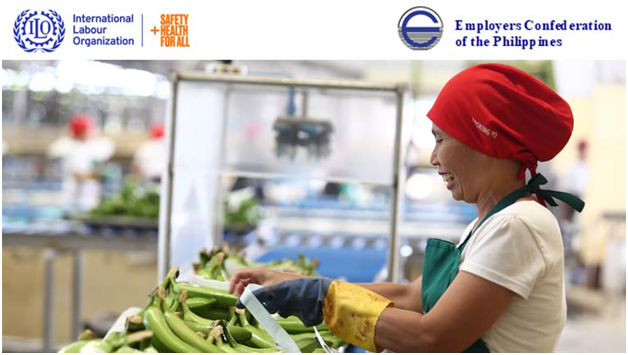ILO, ECOP partner for responsible labour practices in rural sectors
The agriculture, fishing and mining sectors are highly characterized by poverty and poor working conditions. It is usually linked with long working hours, low wages and other issues related to payment of wages, hazardous working environment, widespread informality, ambiguous employment relationships, non-standard forms of employment, among others.
Despite their crucial role, women workers in these sectors are at further disadvantage and face inequalities and challenges that affect their access to decent work, such as lack of information on jobs availability, opportunities for training and education, limited access to property, land, financial and non-financial services, among others. Women’s presence in workers’ and employers’ organizations remains low, leading to a lack of voice and representation in policymaking and programme development.
Nine million Filipinos work in the agriculture, fishing and mining sectors, and 22 per cent of which are women. Agriculture and forestry registered an increase in employed persons of over one million in 2021. Meanwhile, the mining industry’s GDP share has also increased P102.3 billion to the gross domestic product (GDP). However, these sectors are highly characterized by poverty and poor working conditions, especially at the lower tiers of the supply chains.
Addressing these decent work deficits in these rural sectors is crucial. “Globally, there is also a growing demand for businesses to ensure responsible business practices and due diligence within their supply or value chain. More and more countries are integrating labour provisions in trade policies and agreements, helping promote compliance to labour standards, including occupational safety and health (OSH) and gender equality”, according to Director Khalid Hassan of the ILO Country Office for the Philippines.
The International Labour Organization (ILO) and the Employers’ Confederation of the Philippines (ECOP) jointly organize a series of webinars to convene business industries in the agriculture, fishing and mining to promote “responsible labour practices to achieve inclusive and sustainable business in the rural sectors”.
This initiative is undertaken in line with the goal to improve promotion of labour laws compliance, occupational safety and health (OSH) and gender equality in the agriculture, fishing and mining sectors, under the ILO’s Project on Improving Workers' Rights in the Rural Sectors of the Indo-Pacific with a focus on Women . The project is funded by the United States Department of Labor (US DOL) and implemented as part of the ILO Flagship Programme on Safety + Health for All , aimed at improving the safety and health of workers worldwide.
The sectoral webinars, which will be held on 15 Feb (agriculture), 22 Feb (fishing) and 1 March (mining), aim to raise awareness on the benefits and importance of compliance to labour standards and sectoral good practices and provide a platform for dialogue between government and businesses on recent developments and key policy issuances relevant to labour standards, OSH and gender equality, and how it can be applied in the target rural sectors.
Employer and Business Membership Organizations (EBMOs) play a critical role in creating employment opportunities and improve living standards for workers in agriculture. ECOP President Sergio Ortiz-Luis, Jr says, “companies and their supply chains in the country are called upon to undertake plans and actions in response to the ever-growing demands of their international markets, consisting of compliance to, and application of, good business practices based on universal human rights and respect for workers’ rights”.
This webinar series aligns with the ILO’s Global Call to Action for a human-centered recovery from the COVID-19 pandemic that is inclusive, sustainable and resilient. Similarly, it is aligned with the goals and targets set by the government, employers and workers’ organizations, and other social partners under the Decent Work Country Programme of the Philippines and the National Employment Recovery Strategy (NERS) to help restore the country’s labour market from the pandemic. Moreover, it seeks to support the government’s agenda to fully implement the labour standards in the rural sectors and broaden market access through various trade agreements especially for markets requiring compliance and due diligence.



